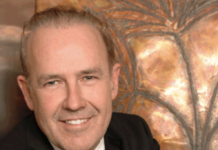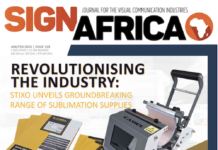John Tschohl, president of Service Quality Institute, discusses Disney World’s reputation for exceptional customer service. Empowerment is a religion there. Employees are thoroughly trained and then told that they have the authority — it has been delegated to them — to do whatever is necessary to deal with problems on the spot in order to make customers happy. This article appears in Sign Africa Journal.
Their core values stack up with other great companies like Amazon (customer obsession) or Apple (insanely great customer service) or Starbucks (creating a culture of warmth and belonging, where everyone is welcome).
Disney World believes that front-line employees should be the first and the last contact for customers. There are four roadblocks that must be removed in most companies today to develop a truly empowered workforce:
1. Fear
Employees fear they will be fired for making an empowered decision, while employers fear that customers and employees will abuse empowerment. When you train your employees and support their decisions, you will eliminate that fear and allow your employees to be creative, yet responsible, in serving customers. The Disney philosophy is reflected in a statement that every organisation that desires customer loyalty should mount on the boardroom wall: ‘Management Must Not Only Support the Front Line But, It Must TRUST It As Well.’
2. Distrust
Employers must trust their employees to make decisions that will keep their customers, and their money, coming back. Employees must be able to trust that their employers will not deride or, even worse, fire them if they make a mistake in an attempt to solve a customer’s problem.
Said James Poisant when he was manager of business seminars at Walt Disney World, ‘If a supervisor notices a front line person giving away the store, he’ll usually wait and talk it over with him later.’ He will wait instead of intervening.
3. Micromanagement
Nothing will kill empowerment more quickly than micromanagement. When you micromanage your employees, you destroy their capacity for even the most basic creative thinking and problem solving. Let your employees know what you need from them, then get out of the way and let them do what you’ve asked them to do.
When you walk up to a guest relations window at EPCOT Center, register a complaint, and ask for your money back, the employee at the window will more than likely act in your favour immediately and send you away happy. Management interference is discouraged.
4. Lack Of Recognition
The need for recognition is universal. Everyone needs to be told when they are doing something well, but all too often the only time employees get feedback is when they have made a mistake. The more you recognise the empowered decisions and achievements of your employees, the more likely they will be to use their creativity in dealing with situations in the future.
Cast members (as front-line employees are called) do not say, ‘That’s not my job, I’ll get a supervisor.’ When people with problems call a number at Disney World, the first employee who answers the phone makes a plan to solve the problem. Eliminate these four roadblocks and you’ll have an empowered team that will drive your business and crush your competition.
John Tschohl is a professional speaker, trainer, and consultant. He is the president and founder of Service Quality Institute with operations in over 40 countries. He is considered to be one of the foremost authorities on service strategy, success, empowerment and customer service.
JOHN TSCHOHL https://johntschohl.com/















